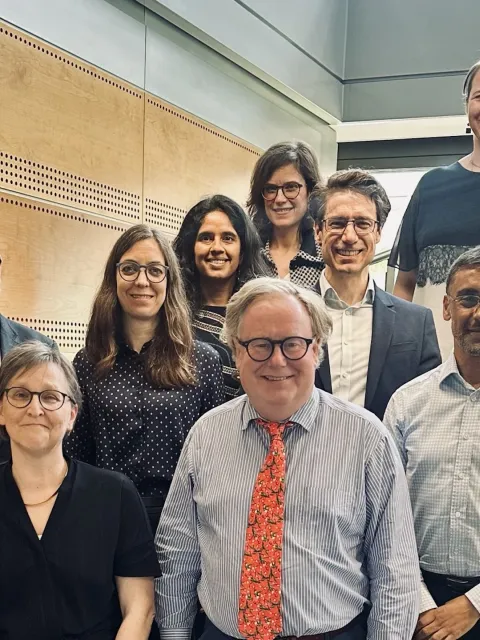Launch of CanStaging+, a new digital tool to improve data collection for cancer
IARC, The Northern Ireland Cancer Registry and UICC are launching a new software to facilitate cancer staging, aiming to improve national cancer control with more effective collection of comparable data.

When a cancer is diagnosed, it is classified according to its “stage”, the extent to which it has spread in the body. At the individual level, stage is crucial in determining the appropriate treatment and prognosis; at the population level, stage is an increasingly important component of cancer surveillance and cancer control as it provides information on the performance of health systems and the efficiency of policies in terms of prevention campaigns, early detection programmes and care management.
Cancer stage is an important prognostic indicator and, at population level, it is vital for monitoring and comparing cancer outcomes. Yet collecting information on stage while adhering to internationally standards remains a challenge. The CanStaging+ tool aims to support the collection of complete, comparable cancer stage information internationally.
– Isabelle Soerjomataram, Deputy Branch Head Cancer Surveillance, International Agency for Research on Cancer
For this reason, assessing cancer stages more widely and collecting comparable and complete data on cancer are essential to an accurate monitoring of a country’s cancer control policies and evaluating outcomes.
To this end, the International Agency for Research on Cancer (IARC) and the Northern Ireland Cancer Registry at Queen’s University Belfast developed CanStaging+, in partnership with UICC. CanStaging+ is a simplified staging software tool that harnesses new digital technology to facilitate the recording of comparable cancer staging data worldwide. It thereby constitutes a crucial tool in improving national cancer control planning.
“Almost half of registries in Latin America and the Caribbean report staging information compared to 96% of registries in North America and Europe. A lack of data and inconsistency is a huge problem in high-income countries too, where there were 6-37% of missing staging data for colorectal cancer across seven countries within the International Cancer Benchmarking Partnership between 2010 and 2014.”
– Dr Anna Gavin, Founding Director of the Northern Ireland Cancer Registry
UICC collaborated in the development of CanStaging+ by providing access to the TNM Classification, an internationally accepted standard for cancer staging that UICC has been publishing for over fifty years. The tool provides automatic calculation of the TNM staging according to the 7th and 8th editions of the TNM Classification of Malignant Tumours for eleven major tumour sites. Both online and offline versions are available to make sure cancer registries can access the tool easily.
“From a health information system perspective, the availability of quality stage data generated by population-based cancer registries is essential for developing, implementing, monitoring and evaluating sound strategies for cancer prevention and control. UICC is very pleased with this collaboration and looks forward to the CanStaging⁺ being widely used by cancer registries worldwide to improve the availability and completeness of cancer staging data at the population level.”
– Zuzanna Tittenbrun, Global Resources Manager at UICC
The continuing COVID-19 pandemic has disrupted the ability of healthcare systems to deliver services across the cancer continuum. It is of vital importance to resume cancer control activities, including early diagnosis, population-based cancer screening, timely treatment, continuous monitoring and reporting of cancer staging.
To mark the launch of the CanStaging+ tool, an accompanying article has been published in The Lancet Oncology, “CanStaging⁺: an electronic staging tool for population-based cancer registries”.
To learn more about TNM and to access free e-learning modules and short education videos, please visit UICC’s dedicated webpage.
Last update
Wednesday 04 August 2021




